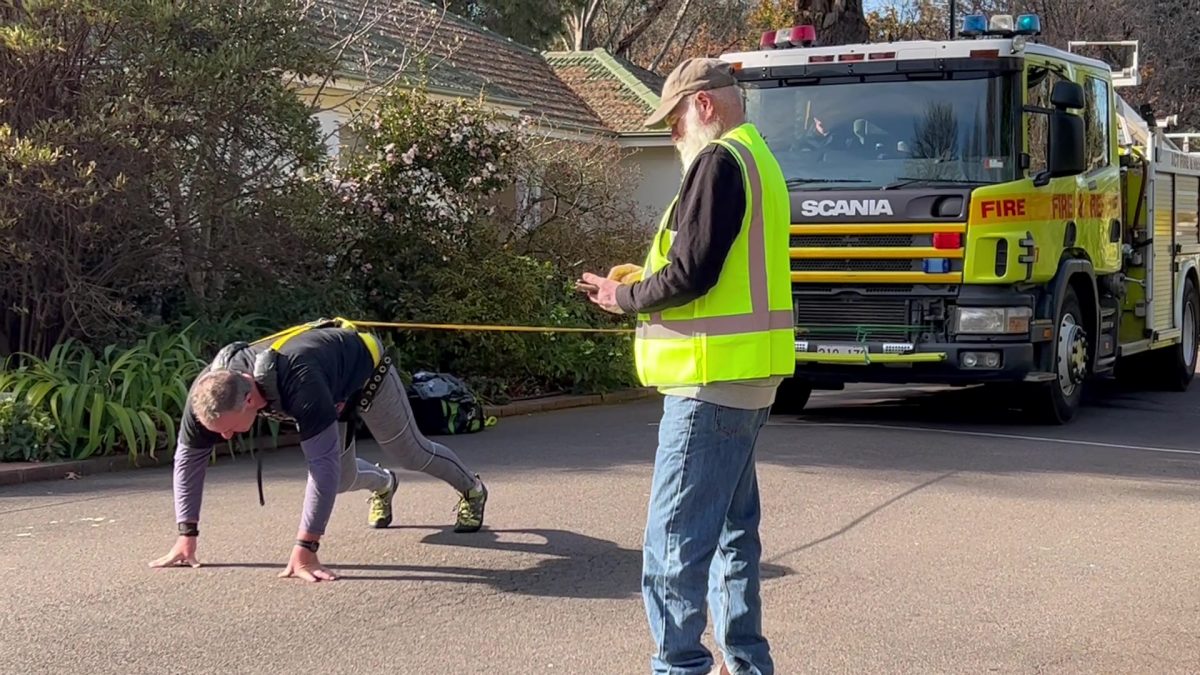
Grant Edwards has pulled trains, ships and planes. Surely a fire truck will be a walk in the park. Photo: James Coleman.
It begins to move. All 10 tonnes of fire truck inches down the driveway at Government House in Yarralumla. But taking the place of a rumbling diesel engine is a man, tethered to the front with a rope.
His face grimaces and his body ripples as his hands and feet claw the tarmac for grip. Cheers of “Come on” and “You can do it” erupt from the sidelines.
Provided the truck crosses the finish line in less than one minute and seven seconds, Tuesday, 28 June, will go down in history as the day the Guinness World Record was broken for the fastest time to pull a 10-tonne fire engine 50 metres.
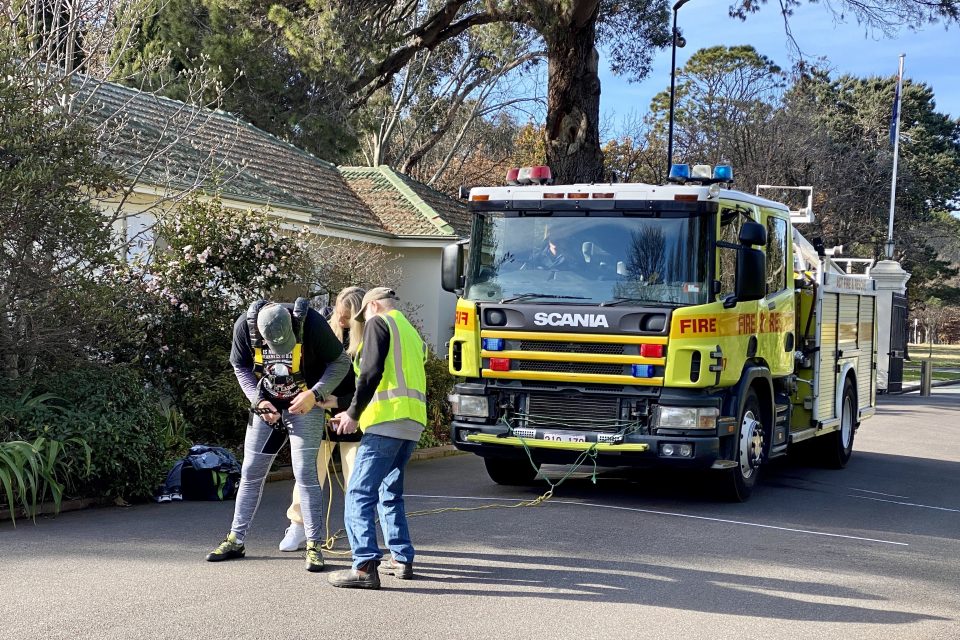
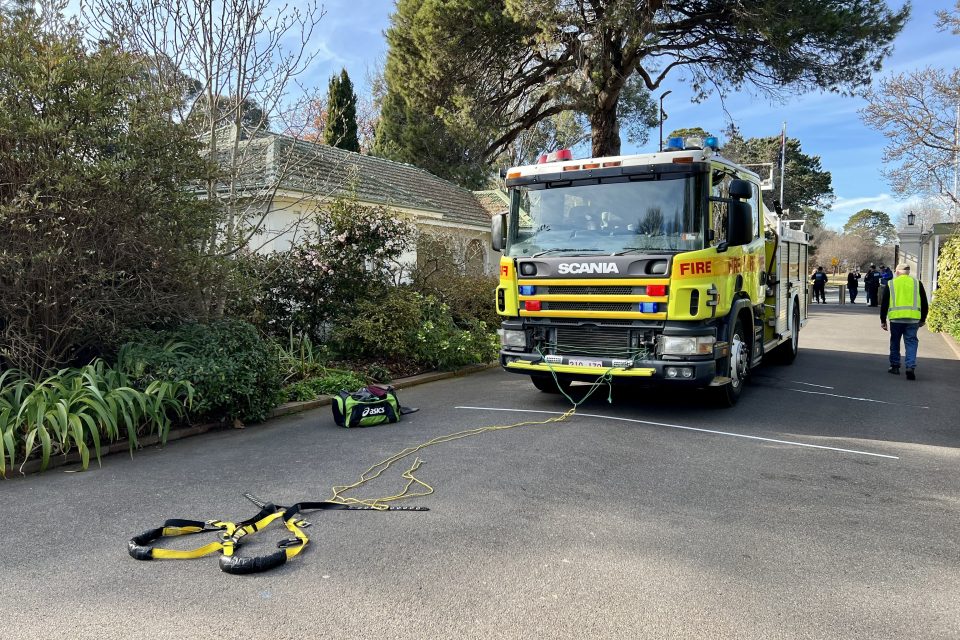
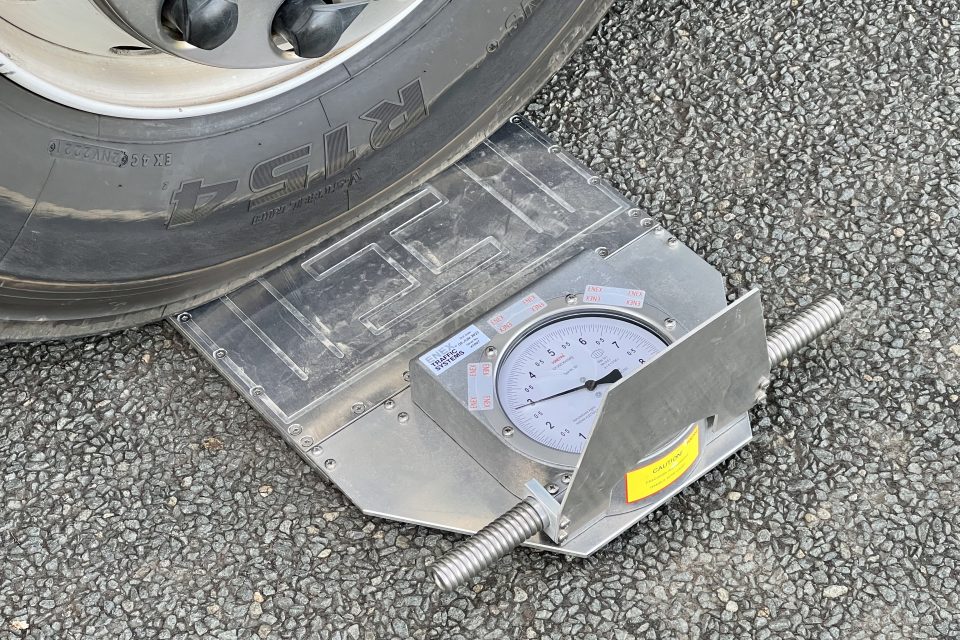
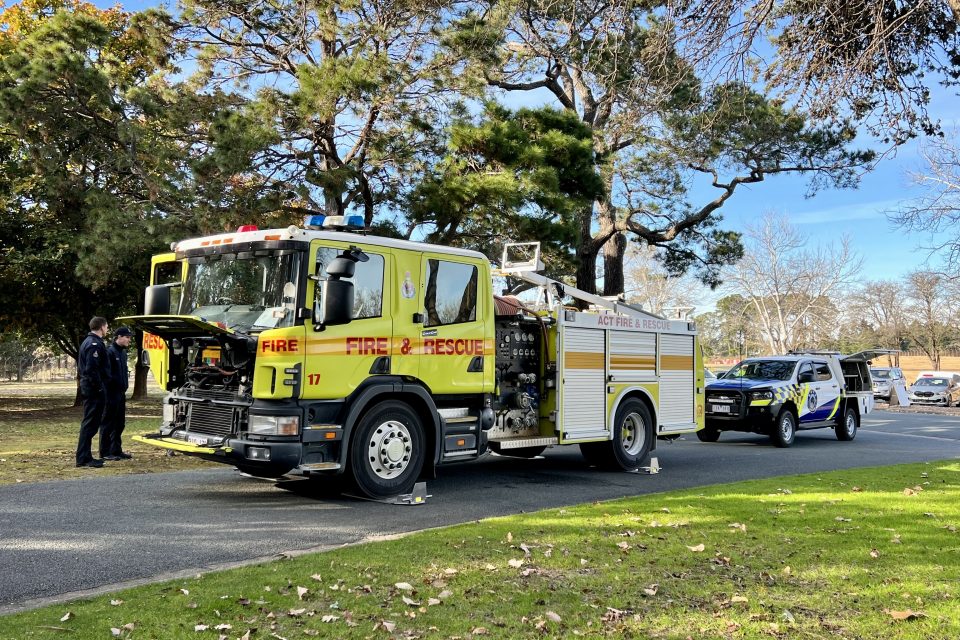
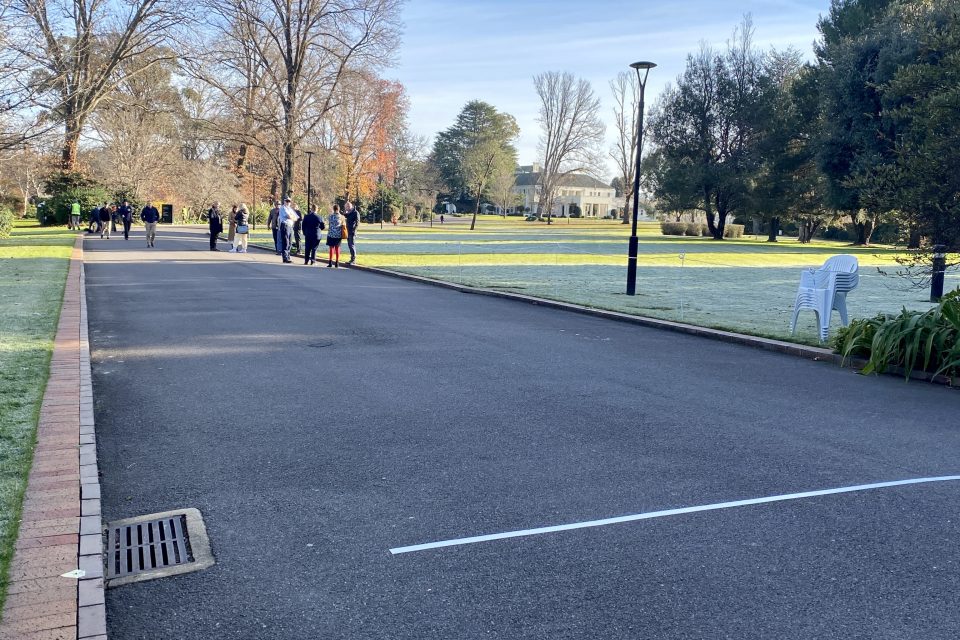
Grant Edwards qualified for the World’s Strongest Man in 1999. Three years earlier, he single-handedly pulled a 201-tonne steam locomotive 36.8 metres along a stretch of track in Thirlmere, NSW. The day before, he pulled the Bounty in Sydney Harbour for 25 metres. He’s also conquered a 220-tonne steam locomotive in Canberra and a C130 military aircraft in Richmond, NSW.
“When I do the heavier implements, it’s more about solid strength but with this – because of the distance – it’s also about being able to sustain a load for a couple of minutes,” Grant says.
“It’s almost on that threshold level of human capability.”
The ACT Fire & Rescue pumper grinds to a halt as the cheering intensifies. He’s made it halfway but try as he might, Grant can’t make it budge. He’s obviously gutted as he wipes the sweat from his brow, but the crowd doesn’t mind.
“I found it hard to get out of bed this morning, much less pull a truck,” Governor-General David Hurley says.
The Governor-General and his wife Linda Hurley host the event, which is far more than about breaking records.
“I’m delighted to have FearLess and Integra Assistance Dogs and their veteran and first responder handlers here for what is a fun event – not necessarily for Grant – but also an important event highlighting National Post-Traumatic Stress Disorder (PTSD) Awareness Day,” the Governor-General says.
Grant says the effects of PTSD is an important message every day.
“I describe myself as a statistic, in terms of attempting to take my own life and having PTSD. I now want to help others not end up where I ended up.”
Grant joined the Australian Federal Police (AFP) in 1985 and worked across the globe in family law, international drug trafficking and people smuggling. He established the AFP’s Transnational Sexual Exploitation and Trafficking Team in 2003.
In 2012, he joined thousands of Australians deployed in the fight for Afghanistan, where he served as AFP commander and deputy head of the International Police Coordination Board (IPCB).
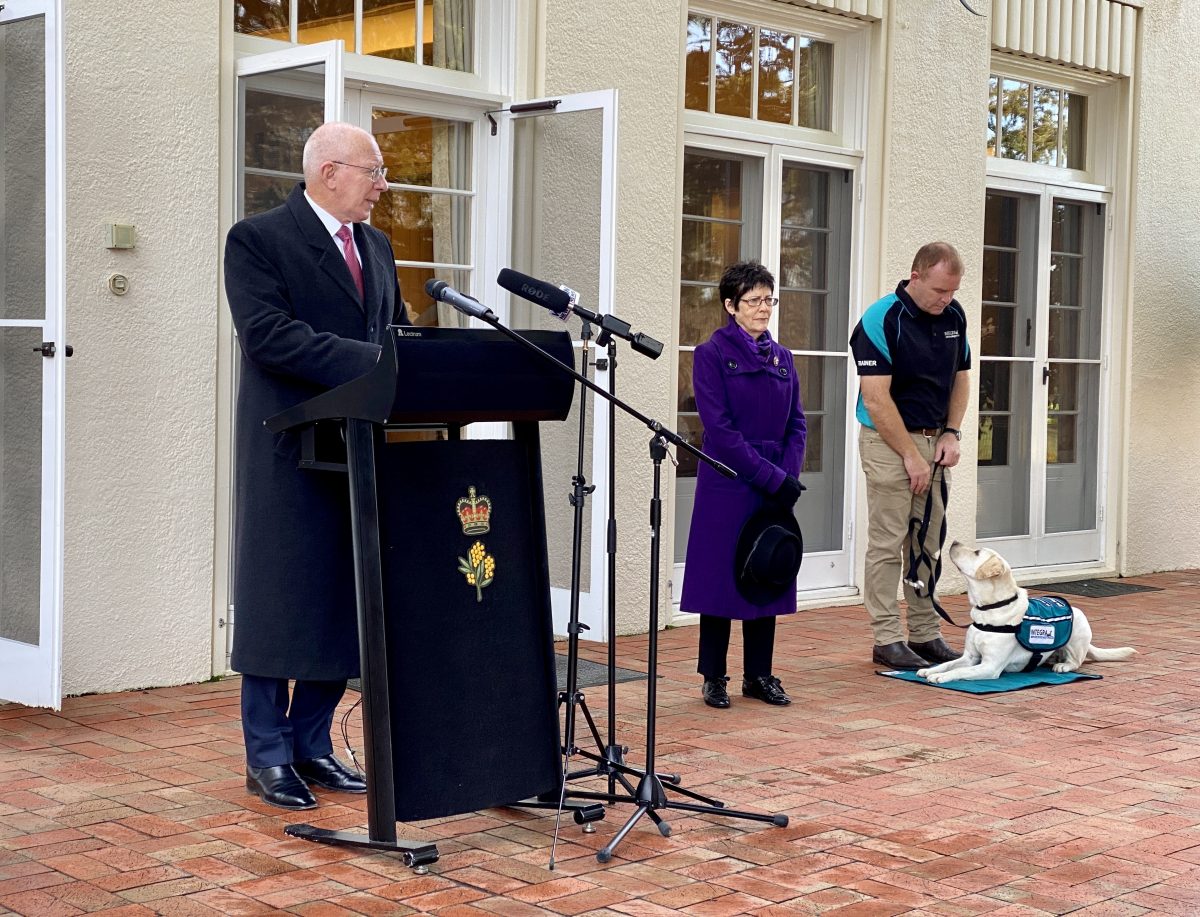
Governor-General David Hurley, Linda Hurley and Integra Assistance Dogs trainer. Photo: James Coleman.
If what he saw every day in the field wasn’t enough, a narrow escape from the Taliban in Kabul pushed him to breaking point. Huddled in a filthy bunker, Grant and a colleague had their pistols aimed at the door they knew could be smashed open at any moment.
The hour of torture finally ended when the attack was repelled, but it had lasting effects on Grant’s mental health.
Back home, he tried to drown the anger, disappointment and nightmares in alcohol and sedatives before leaving his Gold Coast home one day, unbuckling his seat belt and aiming his car at a tree.
“I had one foot in the grave, but at the very last instant my trance was broken. Of all things, I saw Pa,” he wrote in his autobiography The Strong Man.
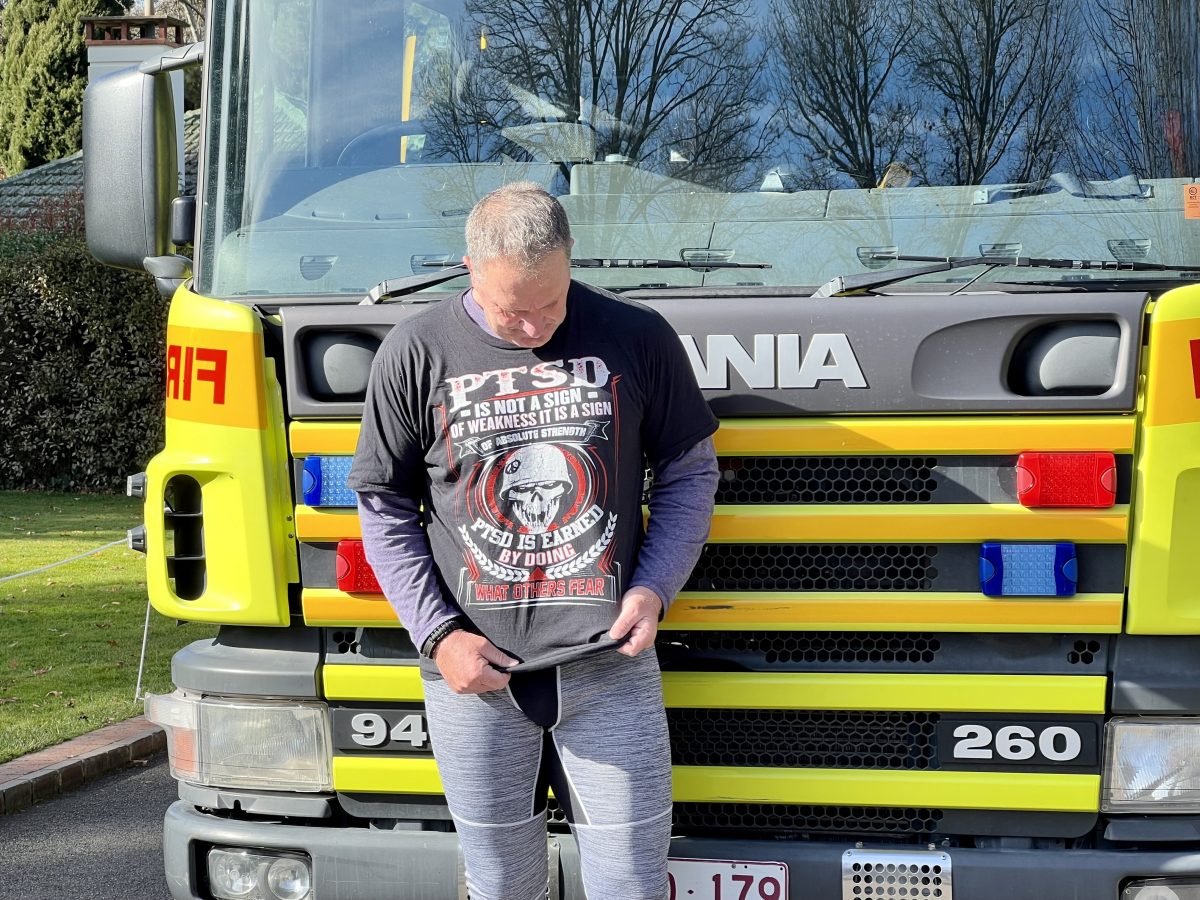
Grant Edwards was diagnosed with PTSD after coming back from service in Afghanistan. Photo: James Coleman.
Becoming Australia’s strong man has helped Grant escape. Today, he’s also an ambassador for FearLess, a not-for-profit organisation working with people living with the effects of PTSD.
“PTSD needs to be understood and not something people ought to be ashamed of,” he says.
“It’s not the fault of the individual when they get exposed to trauma. Talking about that and my experience will hopefully encourage others and their families who are suffering alone.”
Grant certainly isn’t finished.
“I might not have broken the record, but that was part of the attraction – to get everyone here. I’ll have another go.”












